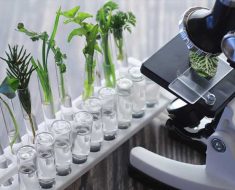Personalised nutrition, where your DNA tells you what to eat and what not to eat, is gaining momentum. And for those with money to spare, a number of companies now offer fully personalised nutritional advice aimed at improving your overall health.
Having researched this area for a number of years, I thought it was time to put my money where my mouth is and find out for myself what it feels like to receive personalised nutrition advice based on my genetics. So I sent off a saliva sample to a company in Norway that came highly recommended by a dietitian friend.
Testing my DNA made me choose my foods completely differently.Credit:SMH
The results came back and I was shocked to discover I have a genetic predisposition to high cholesterol and cardiovascular disease, both of which can be prevented by making simple dietary changes – which I have since made. Seeing the evidence related to me, only me, and not a generic healthy eating note, literally brought the message home. At first glance I saw only my eventual mortality. But looking again in a more positive light, I saw that I now held the key to postponing that mortality and took action.
To cut a long story short, I am now pretty much teetotal and “B” vitamin pill popping, as according to my genetics, I cannot absorb what I need from diet alone. And because meat is the main source of LDL cholesterol – the one that’s sometimes called “bad cholestrol” as it’s known to raise your risk for heart disease and stroke – I am now vegetarian and my cholesterol is normal.
Of course this regime would not be “healthy” for everyone as not everyone is alcohol intolerant. Nor will everyone have a genetic tendency toward cardiovascular disease. It wasn’t all bad news though, apparently I am caffeine and dairy tolerant so can enjoy cheese (reduced fat of course) and thankfully, coffee.
Digesting data
But doing the test got me thinking, doesn’t everyone have a right to know their dietary related health risk? And aren’t younger people best placed to make changes that can bring about a sustainable benefit to health and well-being? And what about the majority of people in society who do not have the money to throw away on something that may only deliver benefit if dietary changes are achieved?
Whether I made dietary changes or not, I had a right to know this information about my health. And it’s a pity I did not have this information in my twenties rather than in my sixties, by which time there may already be irreparable damage to my body.
At the moment, such information is only available to those who can afford to pay for it. And the problem with this approach is that if public health services fail to roll out personalised nutrition to everyone as part of routine health care, it could soon lead to widened health inequalities – which would create a negative health impact in and of itself.
Make the future personal
At the start of 2019 the NHS pledged to collect genetic information on all patients attending clinics. But this is probably a case of too little too late, as people attending clinics are already likely to have conditions that are developing. Given that personalised nutrition technologies are already available, it seems unethical to let people go through life not knowing how they can prevent themselves from becoming ill. And as research shows, personalised nutrition goals can be motivating to patients.
The European funded Food4me research project that I collaborated in, found that a personalised approach was motivating not only because the information upon which advice is based is tailored, but also because it puts the individual in control.
It’s clear then that we need to start using genetic based technology to prevent diseases now. Personalised nutrition has the potential to reduce the burden of disease on health services and in doing so reduce public spending on health care. Of course, not all patients will make all the changes needed, but once people have this information, what they do with it is up to them – and it’s their choice to make.
Barbara J Stewart-Knox, Professor of Psychology, University of Bradford
This article is republished from The Conversation under a Creative Commons license. Read the original article.
Source: Read Full Article






